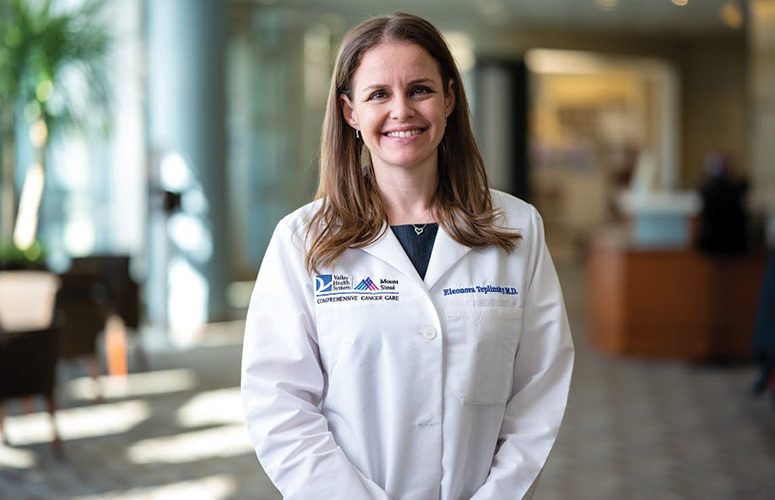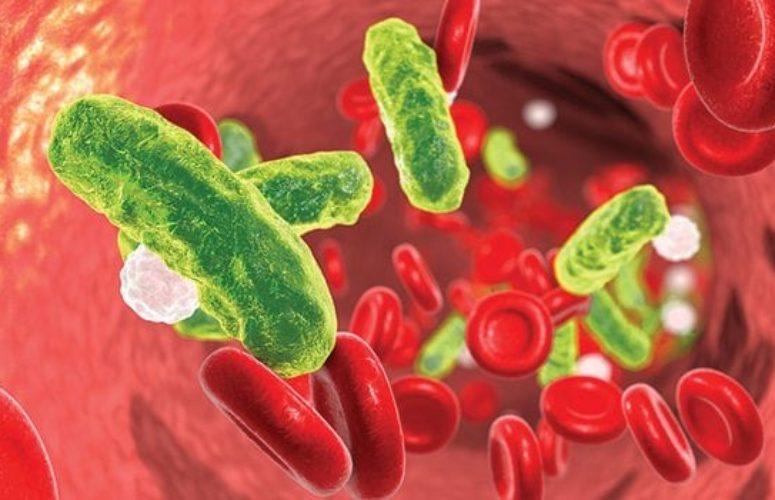
Innovations in Breast Cancer Care
The state’s healthcare institutions are taking an increasingly personalized approach to treating breast cancer thanks to cutting-edge advances in everything from therapeutics to genetic testing.
By Jennifer Lesser, Contributing Writer On Oct 11, 2023Although the incidence of breast cancer hasn’t necessarily declined, patients at New Jersey hospitals and cancer centers are living longer – and enjoying a better quality of life – thanks to ongoing advancements in everything from genetic testing to targeted therapies for specific gene mutations. These innovations have allowed physicians to better customize treatment to each individual patient so that a breast cancer diagnosis no longer automatically requires chemotherapy, radiation, or surgery.
“Over the past decade or two, we’ve moved away from a one-size-fits-all approach of treating every breast cancer patient with chemotherapy,” explains Dr. Serena Wong, breast oncologist at the Memorial Sloan Kettering Cancer Center in Middletown. “Instead, we’re trying to personalize our approach by pinpointing a particular mutation that’s driving each individual patient’s cancer, and then providing a therapy that targets that specific driver.”
Those therapies now include a vast array of drugs and medications that continue to be a source of innovation in the fight against breast cancer. “The amount of drugs approved for breast cancer treatment in the last few years is staggering – and more are coming,” says Dr. Eleonora Teplinsky, head of breast and gynecologic medical oncology at Valley Health. “We’re getting to the point where we’re able to determine where we can deescalate treatment and avoid chemotherapy and radiation for certain patients.”
Dr. Elias Obeid, medical director of medical oncology for St. Joseph’s Health, agrees that these targeted therapies that focus on specific molecular characteristics of breast cancer cells allow for more precise and effective treatment. He notes that one example would be drugs that target HER2-positive breast cancers, as well as those that are specific for breast cancer linked to having a BRCA1 or BRCA2 gene mutation.
While breast cancer treatment seems to increasingly revolve around personalizing the approach for each individual patient, the state’s healthcare institutions are also putting a greater emphasis on treating the whole patient – and that means addressing any and all issues that may arise during and after treatment.
“Our philosophy has always been providing comprehensive care while treating the patient beyond their cancer,” Dr. Teplinsky says. That approach is evident in Valley Breast Center’s Survivorship Program for patients who have completed their initial breast cancer treatment. The hospital’s survivorship team includes breast surgeons, medical oncologists and advanced practice providers as well as a registered dietitian and health coach to provide evidence-based recommendations that address ongoing side effects and other impacts from the treatment process.
“When a woman has to re-enter life after undergoing chemotherapy, surgery or radiation, it can be really challenging. There are so many other issues that may come up after they’ve completed their treatment, from early menopause or loss of fertility to the effect on their employment or marriage,” Dr. Teplinsky says. “Although we have novel therapeutics and diagnostics, a big focus remains on improving survivors’ quality of life after treatment.”
Likewise, MSKCC offers mental health services like psychiatrists, social workers and support groups along with physical rehabilitative services like occupational or physical therapy for patients. Dr. Wong notes that the field of breast cancer treatment is also trending toward providing patients with more holistic treatment options.
“There’s been a huge increase in the interest for integrative medicine, so we’re offering more natural remedies and holistic approaches to health and wellness for our patients, from acupuncture to meditation,” she says.
However, while outcomes have improved exponentially and patients are living longer, Dr. Teplinsky notes that medical professionals are seeing an uptick in younger patients being diagnosed with breast cancer. As a result, a lot of the latest research has centered around treating a younger patient population and determining why they are developing the disease in the first place.
“We don’t yet know why younger people are getting diagnosed with breast cancer. It could be related to lifestyle choices like alcohol consumption or smoking, obesity, or the environment, but it’s shaping breast cancer research as well as our guidelines and approach to screening,” she says.
Along with more personalized treatment approaches for women of all ages, the state’s healthcare institutions are also placing an increased emphasis on breast cancer prevention. Overlook Medical Center’s comprehensive wellness approach includes weight loss, exercise and smoking cessation programs in addition to educational initiatives such as promoting proper breast self exams.
“When you start seeing the pink ribbons everywhere, we’re all talking about research for early detection and treatment. However, while breast cancer prevention doesn’t necessarily have the same ‘wow factor,’ we feel strongly that more emphasis should be placed on how to prevent it from developing in the first place,” says Dr. Bonni Guerin, a hematologist/oncologist and director of the Breast Cancer Treatment and Prevention Program at Overlook Medical Center.
Part of Atlantic Health System, Overlook’s Stacy Goldstein Breast Center was dedicated this summer and is undergoing numerous enhancements, including access to a risk calculator that invites patients with over a 20% risk to participate in the center’s Breast Cancer Surveillance and Prevention Program. The hospital is also taking measures to increase access to care for women who may not have adequate health insurance.
Dr. Guerin notes that some of the greatest strides in breast cancer diagnostics are being made in genetics, such as the fields of cell-free DNA or circulating tumor DNA. “After a patient completes their treatment, we can continue to draw blood every six months to check for any sort of tumor DNA and catch it before it develops into anything … and potentially save the lives of patients who were destined for a recurrence,” she says.
According to Dr. Obeid, these new advances in testing for and analyzing circulating tumor DNA (or liquid biopsies) in the bloodstream may also provide information helpful in detecting cancer recurrence or resistance early on and possibly even help with screening for cancer in the future.
When it comes to the role genetics plays in breast cancer, New Jersey hospitals are also actively participating in clinical trials to learn more about breast cancer recurrence as well as determining which patients are at the highest risk of developing cancer in the first place. “We know that some women do harbor an inherited mutation that predisposes them and other family members to breast cancer, so we recognize the importance of providing genetic testing to those patients,” Dr. Wong says.
Breast imaging technology has also evolved and improved over the years, with the latest addition being the 3D mammogram for screening, which, according to Dr. Obeid, leads to fewer call backs and better detection.
Another ongoing area of study is what role AI may someday play in the diagnosis or treatment of breast cancer. “Mammograms are helpful for screening, but they aren’t 100% foolproof, and we’re trying to figure out if AI may be useful in helping a radiologist make a diagnosis in a patient with early-stage cancer or whose breast density makes a tumor difficult to detect,” Dr. Wong adds.
On the treatment side, Dr. Obeid notes that immunotherapy continues to be utilized for certain breast cancer patients, which helps the body’s own immune system recognize and attack cancer cells. “It’s particularly useful in treating triple-negative breast cancer, which is breast cancer that lacks hormone receptors and HER2 receptor,” he explains. Additionally, advances in cancer genomics and molecular profiling of cancer have also led to more personalized treatment approaches.
To access more business news, visit NJB News Now.
Related Articles:





